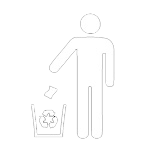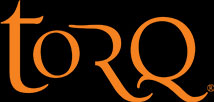L-Glutamine Powder
Product Highlights
- Pure Pharmaceutical Grade
- Prevents Muscle Breakdown
- Supports the Immune System
- Accelerates Recovery
Product Summary
L-Glutamine is a non-essential/conditionally essential amino acid that is used in the synthesis of proteins within the human body. It is the most abundant amino acid in the body and we can produce our own supply, so one would expect that supplementing with it would be pointless? During times of stress (exercise or illness) however, demand for glutamine can be extremely high and the human body will scavenge for it, breaking down hard-earned muscle tissue to put a supply of glutamine into the bloodstream. This is when supplementation makes sense and where the term ‘conditionally essential’ is derived – it’s not an essential amino acid as such, but under certain circumstances when demand for glutamine is very high, supplementation does become ‘essential’.
Pure pharmaceutical grade TORQ Glutamine has very little flavour and can easily be added to beverages or sprinkled onto food to increase L-Glutamine consumption at times when it is required. It is important to note that both TORQ Recovery Drink and TORQ aTAC contain significant amounts of L-Glutamine to assist in post-exercise recovery and immune system support respectively.
Product Usage
1 level scoop delivers 4 to 5g of TORQ Glutamine.
To maintain your muscle integrity and fuel the immune system, take 6-10 grams (1.5 to 2 level scoops) of TORQ Glutamine immediately following exercise.
You can add Glutamine to any cold beverage or food. It doesn’t have much of a taste, but is slightly ‘gritty’ in texture.
As mentioned in the previous tap, please note that our TORQ Recovery Drink contains TORQ Glutamine at the research-recommended dose (6-10 grams depending on bodyweight), so if you are using this product regularly, it may not be necessary for you to purchase TORQ Glutamine separately also. This would especially be the case if you also have our TORQ aTAC immune support product to hand to use at times of illness/weakened immunity.
TORQ Glutamine can be added to other brands’ protein recovery products if you want to boost their effectiveness, or if you suffer from a particularly weak immune system, supplementing with TORQ glutamine on your ‘rest days’ (when you’re not using TORQ Recovery Drink) may help to ward off infection and illness.
Technical Information
Under exercise stress, all of the human body’s physiological systems are put under stress and this abundant amino acid is used alongside glucose as a fuel source – and it’s this period after heavy exercise where the pools of ‘free’ glutamine become limited due to this elevated metabolism by every organ in the body. Add to this, the demands placed upon Glutamine as a precursor to muscle protein synthesis and you have the perfect storm. As we offer such an effective anabolic (muscle-building) supplement in TORQ HMB, we don’t want to dwell on protein synthesis, because quite frankly HMB trumps Glutamine significantly in this regard, but the two compounds will work very effectively together. The real benefit to Glutamine supplementation for endurance athletes comes from staving off catabolic processes (muscle-breakdown) and supporting the immune system. It stands to reason that if blood Glutamine levels are suppressed following exercise, the body will need to find a supply. There’s plenty of Glutamine buried in the protein structure of skeletal muscle, so that’s where your physiological systems scavenge for it, so supplementing with Glutamine simply provides an alternative source, indirectly protecting your muscle mass from self-destruction.
The link between Glutamine and immune function is an interesting one. Glutamine is the primary fuel for the immune system, favoured over glucose, which explains why glutamine becomes conditionally essential at times of immunosuppression. Under normal circumstances, it’s reasonable to assume that the human body can cope with most illnesses and fight them off without requiring huge reserves of Glutamine, but the challenge comes when the person who gets ill is an athlete. Imagine a bleak winter where the pressure is on to train hard to develop base fitness for the spring and your Glutamine reserves are being hit hard by the rigours of training. As Glutamine is the main fuel for the immune system too, how does your body respond when that winter bug floats past? If there are no reserves of Glutamine, what kind of state do you think your immune system is going to be in? It’s a bit like expecting a Formula 1 car to win a race with no fuel in the tank – there’s a fundamental mismatch.
Glutamine has various other roles in the human body including being an important component of gut health, servicing the intestinal mucosa, but as an athlete and physically active person, there are 3 primary reasons you would supplement with Glutamine – to prevent muscle catabolism after heavy exercise – to encourage and facilitate anabolic processes – and to service the immune system. These 3 reasons for taking Glutamine as a supplement are clearly linked.
If you would like to learn more about exercise and immunity and the role that Glutamine and other nutrients play, please take the time to read our Immune System Support resources by clicking HERE.
Nutritional Info
Ingredients: 100% Pure Pharmaceutical-Grade L-Glutamine.
No Colours // No Flavours // No Artificial Sweeteners // No Preservatives // Suitable for Vegans
Allergy Information: No Allergens.
If you have any questions about this product or any other on this website, please don’t hesitate in contacting us at enquiries@torqfitness.co.uk or on 0344 332 0852.
Research References
- Lacey, JM, Wilmore, DW. (Aug 1990).
Is glutamine a conditionally essential amino acid?. Nutrition Reviews. 48 (8): Pp 297–309 - Brosnan, JT. (June 2003).
Interorgan amino acid transport and its regulation. J. Nutr. 133 (6 Suppl 1): Pp 2068–2072 - Watford, M. (2015)
Glutamine and glutamate: Nonessential or essential amino acids?. Animal Nutrition. 1 (3): 119–122. - Yamamoto, T, Shimoyama, T, Kuriyama, M (2016).
Dietary and enteral interventions for Crohn’s disease. Current Op in Biotechnology. 44: 69–73 - Melis, GC, Ter Wengel, N, Boelens, PG, Van Leeuwen, PA. (2004).
Glutamine: recent developments in research on the clinical significance of glutamine. Curr. Opin. Clin. Nutr. Metab. Care. 7, 59–70. - Castell, LM, Newsholme, EA. (1997).
The effects of oral glutamine supplementation on athletes after prolonged, exhaustive exercise. Volume 13, Issues 7-8, Pp 738–742.










